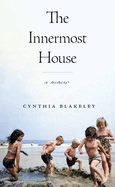
In the preface to Innermost House, Cynthia Blakeley writes that her memoir is "about memory and its conjoined twin, forgetting, as well as about our curation and co-construction of the past--and with it, our shaping of the present and future." That prismatic sensibility informs the scope of her enthralling work. Blakeley, who teaches at Emory University, excavates her impoverished childhood on Cape Cod, Mass., examining her own memories and the memories of others. One poignant example is her mother. When Blakeley was 40, she interviewed her mother and learned about a violent, shame-filled episode that occurred before Blakeley was born. Her mother, who often said that "the past is a cancelled check," never spoke of the traumatic years she experienced with an abusive, obsessive husband, but Blakeley felt the presence of secrets haunting her childhood. Some members of Blakeley's family, such as her maternal grandmother, are forthright with their recollections. Others, such as her youngest sister and cousin, recall aspects of the past entirely differently than Blakeley does. Blakeley explores why each memory stands out to her, but perhaps not to others, and how emotions and internal wiring can impact retention.
The memoir loses momentum when Blakeley devolves into describing and decoding her dreams, but readers will forgive this when they learn Blakeley's Ph.D. dissertation was about that very topic. Blakeley is an evocative writer who captures the lush beauty of a "half feral" childhood spent immersed in the natural world while never losing sight of the precarity and violence that permeated it. --Nina Semczuk, writer, editor, and illustrator

